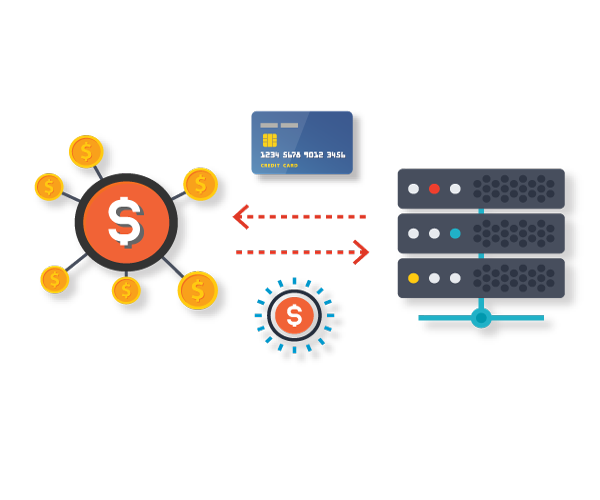Glossary
Acquirer
A bank or financial services company, that has a relationship with the merchant, that processes the credit or debit card payment.
Android Pay
Proprietary technology used by Android devices to pay for goods and services in brick and mortar locations, in-app purchases, as well as in the e-commerce environment.
Apple Pay
Proprietary technology used by Apple devices to pay for goods and services in brick and mortar locations, in-app purchases, as well as in the e-commerce environment.
Bluetooth, Low Energy Technology (BLE)
Similar to NFC or QR codes, Bluetooth low energy (BLE) radio technology facilitates contactless data transfer, BLE provides location-based services that are communicated to a merchant’s point of sale.
Card not present (CNP)
When a credit or debit card is not present for the payment transaction. Most often used in the e-commerce environment.
Card present (CP)
When a credit or debit card is present for payment at a brick and mortar merchant location.
Chip
A small microchip which is embedded into a credit or debit card that stores dynamic data about an account holder. It is inserted into the point of sale payment terminal and then a corresponding PIN number is entered for debit cards, or a signature for credit transactions.
Counterfeit Fraud
When a criminal makes copies of a credit or debit card using illegally or fraudulently obtained data.
Credit Card Surcharge
When a merchant charges a small fee for the use of a credit card.
Cryptocurrency
A cryptocurrency is a digital or virtual currency that works as a medium of exchange, using blockchain or distributed ledger technology. While Blockchain has commercial applications outside of cryptocurrency, cryptocurrency cannot exist without blockchain. Encryption techniques, such as cryptography, are used to secure and verify transactions. Cryptocurrency is unique in that it is not issued by a central bank. Cryptocurrency can be used to make low-cost money transfers, make private transactions (in most cases anonymously), or send non-cash remittances. Examples of cryptocurrency include Bitcoin, Dash and Ripple.
Disclosure laws
Financial laws that are put in place to protect consumers on fraud and data breaches.
Dodd-Frank
A federal law passed in 2010 which provided significant changes to financial regulation in the United States, including debit card reforms.
E-commerce Fraud
Fraud that exists in the e-commerce space.
EMV
EMV stands for Europay, MasterCard and Visa, and is technology introduced by these operators and governed by EMVCo. The chip technology uses encrypted dynamic information embedded on a microchip processor for payment transactions at point of sale locations.
Encryption
The process of encoding a message so that it can be read only by the sender and the intended recipient.
Honor-all-cards
A global card brand/payment card network rule that may requires merchants that accept one of its payment products, such as a Bank of America Visa credit card, to accept all of it’s brands’ credit products from all issuers.
Interchange Fees
Term used in the payment card industry to describe a fee set by card brands and assessed to merchants by issuers for payment card acceptance. Usually it is a fee that a merchant’s bank (the “acquiring bank”) pays a customer’s bank (the “issuing bank”).
International Standards Organization (ISO)
An international organization that is responsible for promoting worldwide industrial and commercial standards, including financial standards.
‘https’
Secure websites begin with these letters. These sites are trusted and a safe way to transact in the e-commerce space.
Magnetic Secure Transmission (MST)
Technology that emits a magnetic signal that mimics the magnetic strip on a traditional payment card.
Magnetic stripe (magstripe)
The stripe on the back of credit and debit cards that holds important account information including: cardholder name, zip code, CVV number (different from the one printed on the card) and account number.
Near Field Communication (NFC)
Technology that is utilized by Apple Pay and Android Pay for payment transactions at point of sale locations in brick and mortar merchants. It relies on proximity of the device to the payment terminal.
Network Fees
Network fees are fees paid by the merchant to the network. These fees are arbitrarily set by card networks like Visa and MasterCard.
Payment Ecosystem
The current state of the payments infrastructure in the United States.
PIN
A personal identification number which is unique to the card and known only to the cardholder. It is entered when a card is swiped or dipped into a card reader.
PIN block
The encryption technology that it utilized when a customer enters their secret PIN at the POS to ensure the PIN number remains protected during a transaction.
Point of sale (POS)
In a brick and mortar store the location where payment transactions for goods and services take place. This can also be the payment screen for an e-commerce or m-commerce sale. In such instances POS and POI – point of interaction – are used interchangeably.
Pre-authorize
A set amount of money is held on a credit or debit card to cover the likely final charges. Mostly used at gas stations, hotels and restaurants.
Processor Fees
Processor are fees paid by the merchant to the payment processor to the merchant from the payment processor and these costs can vary. These fees are to cover the payment processors costs for managing transactions.
Tokenization
Tokenization is the process of replacing one number with another unrelated number.
Samsung Pay
Proprietary technology used by Samsung devices to pay for goods and services in brick and mortar locations, in-app purchases, as well as in the e-commerce environment.
Signature method
During a payment transaction, when a card is swiped, dipped or tapped and a signature is captured as a customer verification method.
